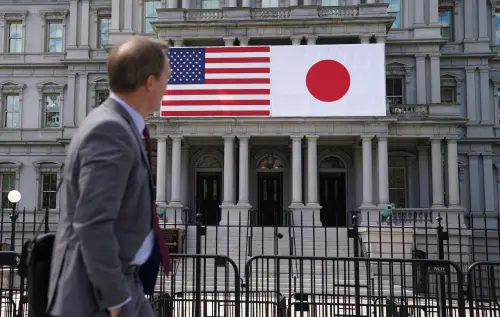According to North Korean news reports, the dictator Kim Jong-il died at 8:30 in the morning on Saturday, December 17 (6:30 Friday evening Washington time). His death was announced on Korean radio at noon on the following Monday (10 pm Sunday night in Washington), an interval that provided time for the North Korean authorities to figure out their next step.
According to the North Korean press, Kim died from “mental and physical overwork” (the medical cause was said to be a heart attack) as he made a train tour of various military and civilian sites, something he had been doing for years even though he has not been in good health since his stroke in 2008. He was especially busy during the last week of his life. On December 10, he made an “on-the-spot inspection” to installations in South Hamgyong Province, including shoe and chemical factories. On December 13, he visited the Pyongyang Capital Guard Unit. On December 15, he was shown triumphantly standing on an escalator at the recently completed Kwangbok Region Grand Mart, presumably inspired by a large fashion mart he saw on his visit to China in May 2011. In his final days Kim also visited the Hana Music Information Center, where North Korean DVDs are produced. These visits were part of his personal campaign to encourage the North Korean economy ahead of next year, when the people have been promised a Kangsong Daeguk [mighty and great nation] to commemorate the 100th anniversary of the birth of the founder of North Korea, Kim Il-sung―who was of course Kim Jong-il’s father. Needless to say, Kim Jong-il’s personal encouragement has done little stimulate the North Korean economy, and most North Koreans ceased to pay attention to his guidance and exhortations.
Like his father, Kim Jong-il wielded power in a relentless fashion and resisted reform and opening. At 69 years of age, he was one of the world’s longest ruling dictators. Kim Jong-il assumed responsibility for leadership in 1994 and formally took over positions of leadership following a three year mourning period in 1997, but his father began handing over the country’s affairs to him around 1980. By contrast, Kim Jong-il designated his 29 year-old third son, Kim Jong-un, as his successor less than two years ago, so the young Kim will not enjoy the same long period of acclimation as his father. Is the third generation Kim up to the job? Most North Korea watchers predict that he will have to share some power with top party and military officials. If he can survive the first few years, he may be able to hang on for quite a long time, just as his father did.
But times are changing. North Koreans now have almost a million cell phones with which they can cautiously share information with each other, although they cannot make calls outside the country. Social networking is becoming very popular among North Korean youth. The 23,000 North Korean defectors who live in South Korea send money and information to their families and friends back home through Chinese connections. Thousands of Chinese traders cross the border and bring goods and information into North Korean society. North Korean diplomats deployed overseas, traders earning foreign currency, and students studying at foreign universities all recognize North Korea’s diminished place in the world. In short, the Kim Jong-il and Kim Jong-un eras are very different: one was analog, the other digital.
From now until the end of Kim’s funeral on December 28, the entire North Korean nation will focus on the funeral business. The first 100 days after the funeral will be an official mourning period, which may be followed by a three-year mourning period in which the new leader keeps himself somewhat removed from daily affairs. (Although this period may have helped Kim Jong-il consolidate power after his father died, it took place at a time when the country was undergoing severe domestic problems and desperately needed a strong leader). Kim Jong-un needs this kind of traditional ritualistic practice to demonstrate his filial loyalty, just as Kim Jong-il did, because biological legitimacy is the only rationale the Kim family has for staying in power.
Although the situation is very uncertain, it seems most likely that a calm period will follow Kim Jong-il’s death. For top North Korean cadres, it will be a time to watch carefully as new power configurations form. Kim Jong-un has reportedly already purged some people whom he deems insufficiently loyal to him, and with his father gone more people are likely to fall. In the most optimistic scenario, political infighting will keep the North Koreans too busy to start trouble with South Korea and the rest of the world.


Commentary
Op-edThe Death of Kim Jong-il
December 19, 2011